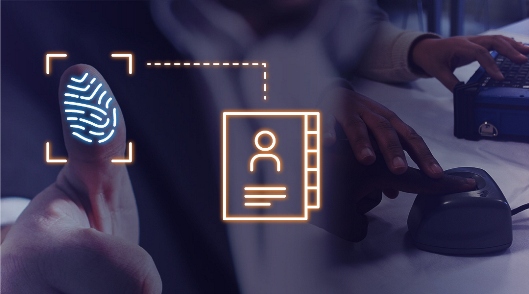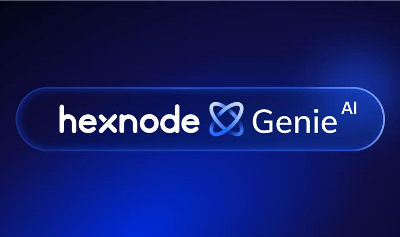By Ideco Biometrics Managing Director Marius Coetzee
South Africa’s Department of Home Affairs (DHA) has proposed a significant increase in its online ID-verification fee, jumping from R0.15 to R10 per lookup. This steep hike could have severe unintended consequences, potentially undermining the progress made in anti-money laundering initiatives and exposing individuals to greater risk of identity fraud.
RELATED: Identity fraud falls slightly in Africa, while traditional scams see a significant decline
Many credit and service providers might simply revert to outdated paper processes, such as printing and photocopying IDs, to satisfy FICA’s “proof of identity” requirements. This regression is highly problematic. The DHA itself has repeatedly warned that older green ID books are “highly susceptible to forgery and identity theft.”
Criminal syndicates already “buy stolen identities” to open fake accounts and facilitate money-mule operations. In other words, going backwards to photocopies invites fraud and violates customer privacy (copies of ID cards can be lost or leaked). We cannot let a fee hike drive a race to the bottom in identity security and hamper all efforts to get South Africa off the Financial Action Task Force (FATF) greylist.
Ideco pioneered South Africa’s move to digital ID
Ideco pioneered South Africa’s move to digital ID. In the mid-2000s we led the Home Affairs Back Record Conversion (BRC) – the world’s largest ever digitisation of fingerprint records. Over 41 million paper fingerprint cards (32+ million delivered by Ideco alone) were converted into an electronic database as part of HANIS. This historic project laid the groundwork for today’s biometric identity systems.
By putting IDs into a searchable digital registry, BRC enabled faster, more accurate ID checks with far less fraud. It opened the door to services like biometric border control, voter registration and – crucially – biometric ID verification. We’re proud this digitisation “revolution” changed the principles of identity management in South Africa.
Empowering organisations with real-time ID checks
South African organisations have already started modernising. In cooperation with the DHA, an Online Fingerprint Verification system lets organisations check clients’ fingerprints instantly against the Home Affairs database. Ideco has supported this integration, helping organisations plug into HANIS for rapid identity proofing.
For example, ABSA was the first bank to go live with this interface, and in pilot tests it caught seven cases where applicants tried to open accounts using deceased persons’ IDs. FNB notes that biometric verification is “one way to build trust with our customers” and dramatically reduce fraud.
Such systems also cut paperwork – one bank found that electronic verification allows all customer documents to be stored digitally; reducing their carbon footprint and allowing for secure storage of highly sensitive personal information.
In short, real-time biometric checks improve privacy, security and operational efficiency. They show that with the right infrastructure, organisations can onboard customers without losing money or carrying bags of paper files.
Identity-as-a-Service (IDaaS)
Today Ideco offers Identity-as-a-Service (IDaaS) to make these capabilities easy for businesses. Our platform ties fingerprint scanners, facial cameras and document checks into your onboarding workflow via API. It performs instant identity proofing – capturing a customer’s biometric data and if required, can cross-check it against trusted sources (including Home Affairs records) in real time.

Marius Coetzee, Managing Director of Ideco
This not only speeds up onboarding, it meets every regulation: our system is explicitly built to comply with South Africa’s FICA, RICA and POPIA laws. In fact, Ideco’s IDaaS ecosystem was designed using world class technologies as a “next-generation identity verification service” for organisations requiring strict FICA and RICA compliance.
Every identity check should end with an electronically signed Identity Proof File – a court-admissible digital certificate confirming who the person is. As a recent Ideco blog highlights, our IDaaS lets companies instantly verify clients and users through secure APIs, while guaranteeing adherence to FICA, POPIA and similar standards. In practice, this means no more photocopies floating around – just strong, auditable digital identity proofs.
A call to collaborate and act
South Africa’s digital ID infrastructure is a hard-won asset. We urge the credit industry to lean in, not back out. Don’t let higher fees push you back to risky practices by putting your organisation and customers at risk through manual processes. Instead, invest in your own biometric workflows. As Home Affairs Minister Schreiber warns, “manual, paper-based systems are vulnerable to manipulation” – digitisation is the only way to enhance security.
Businesses have a stake here: fighting identity theft is “everyone’s responsibility,” and industry must support government initiatives against fraud. Governments and industry should work together to build trust and keep IDs safe.
Our recommendations to lenders are clear: Embrace identity technology as a utility, not a cost. Deploy fingerprint and facial verification end-to-end (for onboarding and ongoing checks) so that identity verification becomes seamless and inexpensive. This approach saves money in the long run by preventing fraud and compliance penalties.
At Ideco, we stand ready to help organisations and credit providers integrate biometric identity management into their operational processes. We have deep experience – from the BRC fingerprint database to modern IDaaS – and we’re committed to keeping South Africans’ identities secure. Let’s work together to build a digital identity ecosystem that protects consumers and supports inclusion, rather than driving our most vulnerable back to paper and risk.






























